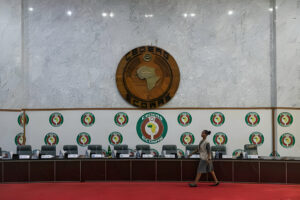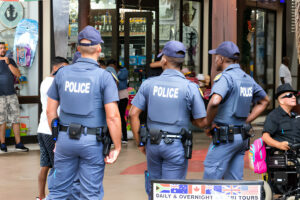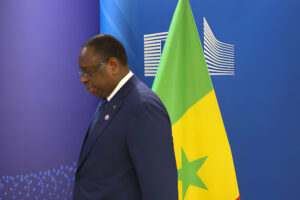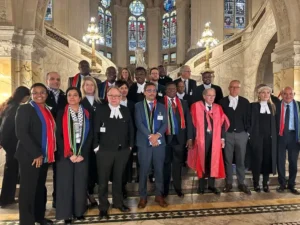Eswatini, the last remaining absolute monarchy in Africa, has recently concluded its legislative elections. Despite facing an opposition boycott and the absence of political party participation, the government has declared these elections a “huge success.” This article delves into the election results and the broader political landscape in Eswatini.
The Electoral Outcome
Electoral authorities announced that 51 men and eight women have been elected as members of the lower house of parliament. However, it’s crucial to understand that this parliament merely holds an advisory role to the monarch, King Mswati III.
The government of Eswatini has lauded the elections as “free and fair,” emphasizing their “democratic nature.” Government spokesperson Alpheous Nxumalo expressed contentment with the election results, highlighting what they view as a significant achievement in the nation’s democratic progress.
A Convoluted Electoral System
In these elections, voters selected 59 lawmakers through a complex system designed to ensure minimal dissent against King Mswati III’s rule. Additionally, the King directly appoints ten Members of Parliament (MPs).
The election results, released on Monday, presented an unusual landscape due to the ban on political parties in Eswatini. Lawmakers are explicitly prohibited from affiliating with political groups, with the constitution emphasizing “individual merit” as the primary criterion for selecting MPs.
It’s worth noting that a small group of reformists, including Nomalungelo Simelane, the wife of an exiled pro-democracy lawmaker, managed to secure seats in parliament. This outcome suggests a shift in the political dynamics of the nation.
Opposition’s Boycott and Voter Turnout
The Swaziland Liberation Movement, the largest opposition group in Eswatini, boycotted the elections. Thantaza Silolo, the group’s spokesperson, commented that “Mswati loyalists are losing relevance in the political space.”
While over 500,000 people were registered to vote, the exact voter turnout remains undisclosed as the Elections and Boundaries Commission has not yet provided an official figure. Reports from one Mbabane station indicate that less than a third of registered voters turned up to cast their ballots.
Peaceful Elections Amidst Past Unrest
Eswatini, formerly known as Swaziland, witnessed violent crackdowns on pro-democracy protests in 2021, leading to numerous casualties. However, the recent elections were carried out without any major incidents. The African Union monitoring mission reported that the elections “took place generally in a peaceful climate.”
Limited Impact of the New Parliament
Despite the election outcomes, it’s unlikely that the new parliament will bring substantial changes to the nation’s political landscape. Most elected candidates maintain loyalty to King Mswati III, who holds a constitutional position above the law. He has the authority to appoint the prime minister, dissolve both parliament and the government, and command the police and army. Additionally, any acts of parliament require his approval to come into effect.
The recent legislative elections in Eswatini have garnered mixed reactions, with the government celebrating them as a success despite opposition boycotts and the absence of political parties. The results reflect a nuanced political landscape in a nation still deeply influenced by its monarch’s firm grip on power. Whether these elections mark a turning point or a continuation of the status quo remains to be seen, as Eswatini grapples with its unique political dynamics.














